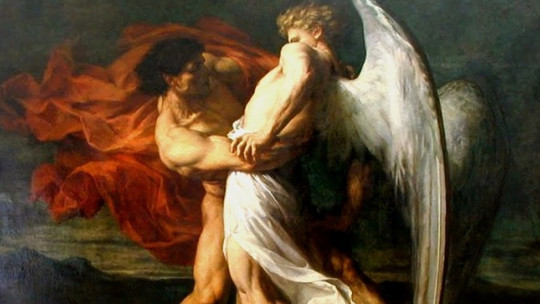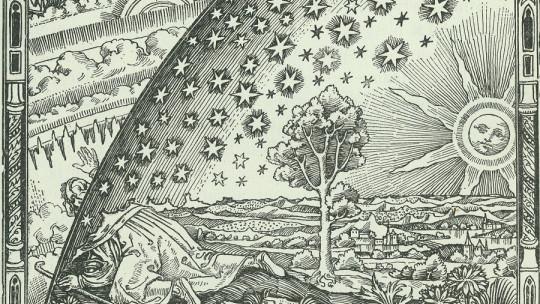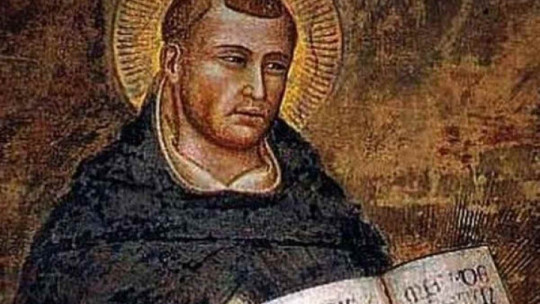
The question about the origin of the world and human beings has been accompanied by a series of philosophical reasoning that has impacted an entire cultural organization. There have been many arguments that from the most classical traditions of philosophy try to prove the existence of a divine being. Among other things, these arguments have been established around the following question:How could the existence of a God be proven? if by definition, “God” creates himself?
The above has only been able to be answered through premises that try to prove themselves. That is, arguments that do not use other forms of justification beyond the central idea being defended.
This is what the term “ontological argument” refers to Below we will briefly review its definition and the reasoning that has been used to justify the existence of a God in Western society and culture.
What is an ontological argument?
To begin, it is necessary to clarify what we mean by an “ontological argument.” The word ontology means “the study of the entity”, which means that it is a philosophical practice that studies the ultimate substance: that which gives shape to an entity, person, individual, matter, object, subject or determined being. Ontology asks what it is? the object you study, and what makes it real? That is to say, It asks about its ultimate cause and its most fundamental properties
In this sense, an ontological argument is reasoning that is used to prove or justify the essence of an entity. Although the latter could be applied to different entities, generally the term “ontological argument” makes direct reference to the reasoning used to prove the existence of God. This is because by his own definition, God would have to have created himself. His existence is based on an ontological argument because the very idea of God refers to the greatest thing that human beings can conceive, and therefore, there is no other mode of existence or knowledge that precedes it
In other words, its existence is based on a series of premises that They try to explain “a priori” the existence of a divine being “A priori” because it is about arguing based on the argument itself, the essence of said being, without the need to resort to previous arguments, that is, without any other argument being necessary to justify the central idea. And, above all, always appealing to reason (not to empirical or naturalistic evidence). Thus, this is an ontological argument because it is not based on the observation of the world, but on a rational and theoretical appeal to the study of being.
Below we will see some of the arguments that have been used since the classical philosophy of Christianity to defend the existence of God.
From Saint Anselm to Descartes
Saint Anselm is the most recognized of the 11th century AD philosophers who rationally argued for the existence of God. Heir to the philosophical tradition of Saint Augustine, Anselm explains that God is the greatest being, that is, not anything greater that can be conceived. The greatest thing we can imagine and intuit is precisely the idea of a God, and for the same reason, it exists. In other words, God’s existence proves itself by God’s own definition.
Saint Anselm’s reasoning is part of a philosophical and religious tradition of the Middle Ages that seeks to argue the divine existence not only based on Christian faith, but on reason. The latter in an attempt to counteract the denial of God of agnosticism and skepticism. In this context, the demonstration and argumentation of the existence of God is considered the transcendent cause that makes possible the link between human beings and the world.
The rebirth and the separation of faith and reason
During the era we know as the Renaissance, the theologian Duns Scotus was one of the most recognized in ontological argumentation. He explains that God, and the attributes of him, They can be conceived through reason and not only by faith
This lays the foundation for thinking that reason and faith are separate fields (contrary to what Saint Anselm said); Therefore, the philosopher and the theologian (and later the scientist) and the tasks that each one performs are also different.
Not only that, but reason begins to be understood as accessible through demonstration and experience, so the existence of God is demonstrated only by faith. And in this same sense, during the Renaissance a skeptical tradition is founded of the religious and the moral.
Descartes’ ontological argument
Coming to modernity and under the same Christian tradition, Descartes appears to try to recover the idea that the existence of God can be proven through reason. This and other philosophers remain skeptical of the realm of experience such as starting point to build rational knowledge From there, Descartes maintains that if there is something we cannot doubt, it is that we doubt and think, that is, that we have a rational substance that allows us to understand material things, and the world in general.
That is to say, it reflects on the authority of reason, on the composition of thought and its extension, and how this is similar to divine existence. For Descartes, reason (mind) is the same as God thereby reformulating the ontological argument for its existence while laying the foundations for the epistemological paradigms of modern science.








